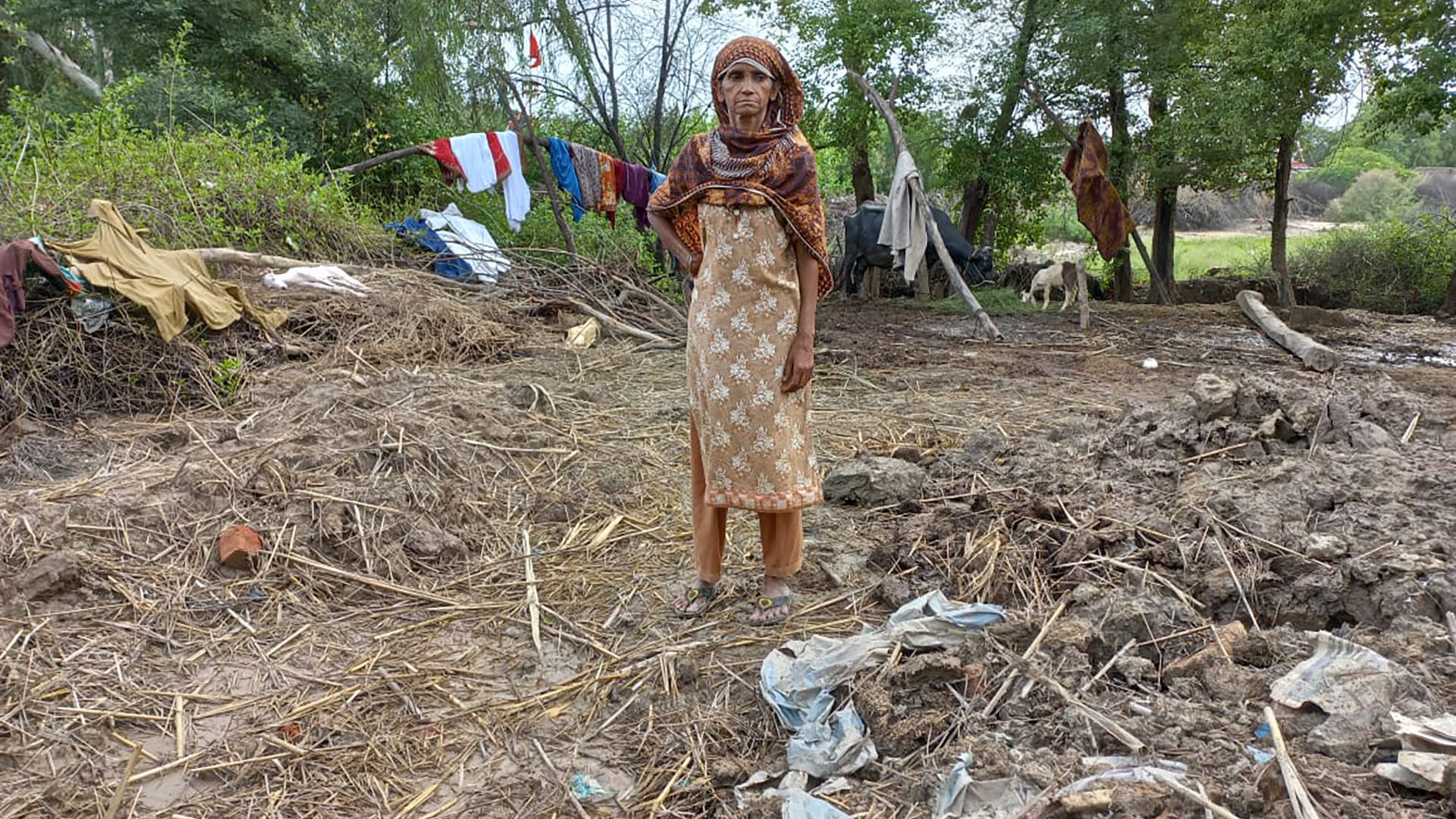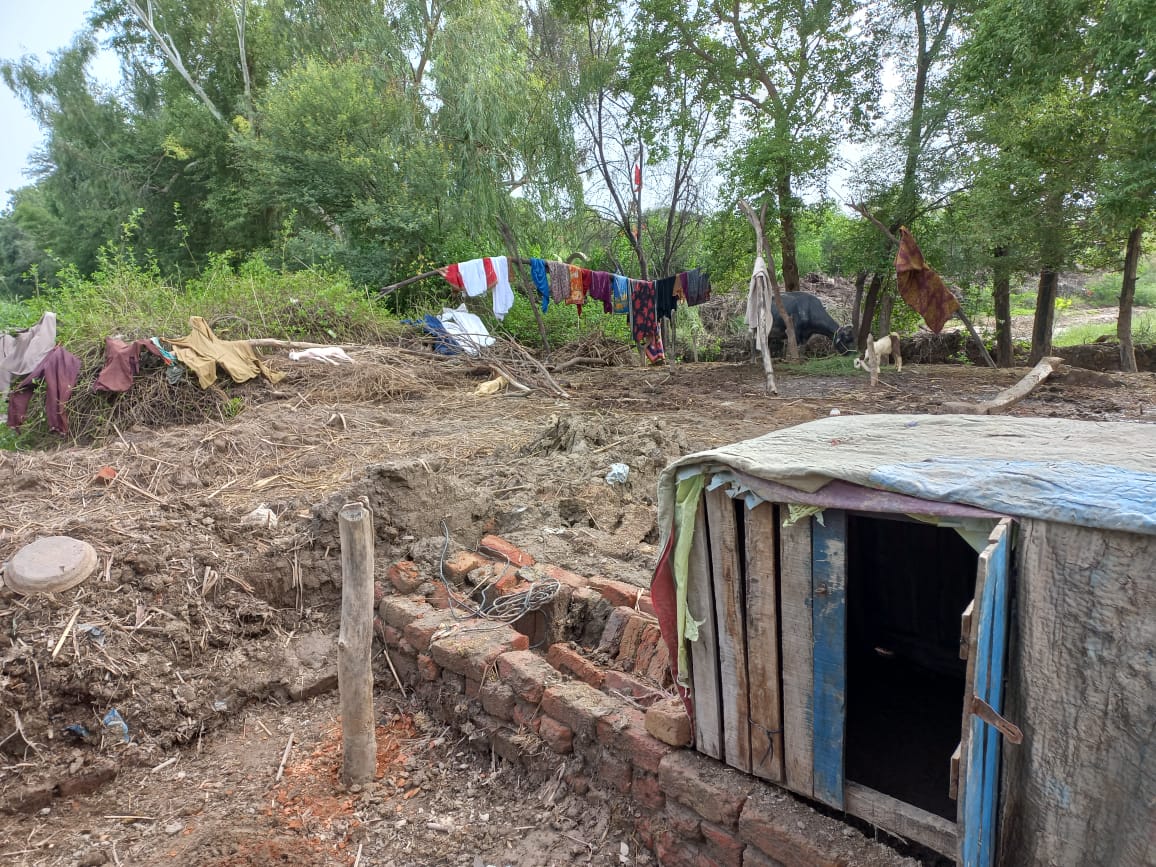Heavy rains and floods destroyed her house, leaving her with nothing. After spending a few days living in the open, her health deteriorated, and she contracted typhoid as a result of the non-stop rain. As she was homeless, she asked nearby members of her community whose home was only partially damaged to provide her with temporary accommodation. But the lack of basic health facilities and damaged infrastructure meant her condition deteriorated, and she didn’t have access to any medicine.

Robina Bughio, 56, Pakistan
Published
Robina Bughio“I had high fever, and I couldn’t go to the hospital. I have no house left where I can go back after the flood situation is over.”
Robina is grateful to her neighbours who provided her with shelter during the worst times. But she is afraid of what might happen when the disaster is over. Heavy rains swept her house away’ leaving nothing behind. Her poor health is another major concern and she might not be able to resume her work as a cleaner.

Robina's home was destroyed by the floods. © HelpAge International Pakistan“I am thankful that I left my house at the right time otherwise I would have not only have lost my house, but my life too. Despite that, I ask if I made the right decision or not, as I don’t have anything left to survive what remains of my life”.
Thousands of families are homeless or displaced due to the devastating floods in Sindh Province. While people are struggling to get basic facilities such as food or medicines, there is a continuous fear of being homeless as the majority of houses have been so severely damaged due to the heavy rains. Provision of shelter has been a major concern among community members.
